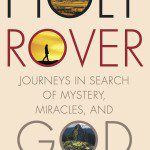
For many centuries, the practice of lectio divina–close, meditative reading of holy texts–has been one of the most important forms of Christian meditation. Many other faiths, of course, also recognize the value of a slow immersion in sacred words.
Contrast that with our reading habits today. Instead of novels, we read blogs (guilty as charged). Instead of reading a chapter in a book, we read a few paragraphs on a website. When our interest flags, we click on to another site, and then another and another.
So when I read this article from the Washington Post I immediately saw myself in its description: Serious Reading Takes a Hit From Online Scanning and Linking
From the article: “We’re spending so much time touching, pushing, linking, scrolling and jumping through text that when we sit down with a novel, your daily habits of jumping, clicking, linking is just ingrained in you,” said Andrew Dillon, a University of Texas professor who studies reading. “We’re in this new era of information behavior, and we’re beginning to see the consequences of that.”
Cognitive neuroscientists, according to the article, believe that we are developing new brain circuits for skimming through vast amounts of information online. But this rewiring comes at a cost. Superficiality triumphs over comprehension. Speed replaces accuracy and engagement. Most disturbingly, when we do sit down to try to read something more serious, those habits of flitting from one topic to the next make it difficult to remain focused.
The article continues: Before the Internet, the brain read mostly in linear ways — one page led to the next page, and so on. Sure, there might be pictures mixed in with the text, but there didn’t tend to be many distractions. Reading in print even gave us a remarkable ability to remember where key information was in a book simply by the layout, researchers said. We’d know a protagonist died on the page with the two long paragraphs after the page with all that dialogue.
The Internet is different. With so much information, hyperlinked text, videos alongside words and interactivity everywhere, our brains form shortcuts to deal with it all — scanning, searching for key words, scrolling up and down quickly. This is nonlinear reading, and it has been documented in academic studies. Some researchers believe that for many people, this style of reading is beginning to invade when dealing with other mediums as well.
I must confess that thanks to my iPad, I read fewer books than I used to. There’s always something more out there to sample–some bright and shiny tidbit of information or news (did you see the newest pictures of Prince George in New Zealand, for example?).
The one thing that seems to work for me is taking some time right after I get up in the morning to read more serious things. I know not everyone has that luxury, of course, and for you that time might come at another time of day or week instead. But I increasingly treasure the time before the day begins, before the details and tasks intrude on my consciousness too much, when I drink a cup of coffee and slowly work my way through a few pages of something that demands concentration. Over the past few years I’ve read the Gospels of Luke and Matthew this way, as well as several of Paul’s letters. I’ve savored books by Henri Nouwen, Anne Lamott, Richard Rohr, and James Martin. And each day, I read five of the Psalms (if you do five a day, you can do the whole shebang in a month). I’m a believer in the words of Dorothy Day (founder of the Catholic Worker Movement): “My strength returns to me with my cup of coffee and the reading of the Psalms.”
The article in the Post mentions the beginnings of a Slow Reading movement, a counterpart to the Slow Foods movement. The initiative is particularly important for children, for if you’ve never had the experience of truly immersing yourself in a piece of literature as a child, you’re not likely to take it up as an adult. And even if you once had the ability to read in-depth, because the brain constantly adapts, you may lose it. In a sense, we become what we read, just as we become what we eat.
Dear readers, do you find your reading habits changing because of being online so much? And does that have an impact on your spiritual life?















